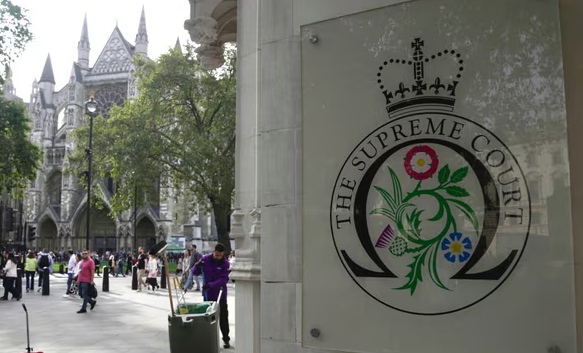The British government will appeal to the UK Supreme Court on Monday to overturn a ruling that found the plan to send asylum seekers to Rwanda illegal.
In June, the London Court of Appeal found that a scheme to send tens of thousands of migrants more than 4,000 miles to East Africa was not legal, emphasising Rwanda could not be regarded as a safe third country.
The Supreme Court will consider the fallacy of the decision, and representatives of migrants from Vietnam, Iran, Iraq and Syria want the justices to conclude that the scheme itself is flawed.
The problem of solving migration is one of Rishi Sunak’s priorities. A successful solution to this problem will be able to strengthen the position of his Conservative Party. Now the party is trailing by about 20 points in opinion polls ahead of the 2024 elections.
Sunak and his ministers argue that the Rwandan scheme, which was proposed last year by then Prime Minister Boris Johnson, will stop human trafficking and deter people from making the dangerous journey across the Channel in inflatable boats and dinghies. Six people drowned in August and 27 people have died in November 2021.
Opponents say it will not work, is expensive and immoral. They include human rights groups, lawmakers, including some conservatives, and the Archbishop of Canterbury, head of the Anglican Communion. Even King Charles has privately voiced his doubts, according to local media reports.
Five justices, including Chief Justice Robert Reed, will decide the fate of the scheme. The justices will hear mostly technical legal arguments over three days starting Monday.
The government’s first planned Rwanda deportation flight had been due to leave in June last year, but was blocked at the last minute by an injunction from the European Court of Human Rights until all the UK legal action had been concluded.
Many in Sunak’s party want Britain to pull out of the ECHR to prevent any repeat, while in a speech to party faithful last week Interior Minister Suella Braverman labelled the Human Rights Act, “the Criminal Rights Act”.
